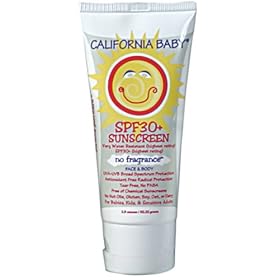 It feels like a good time to review the Environmental Working Group’s Dirty Dozen list of fruit and vegetables with the heaviest loads of pesticides.
It feels like a good time to review the Environmental Working Group’s Dirty Dozen list of fruit and vegetables with the heaviest loads of pesticides.
Although I try to only buy organic produce whenever I can, sometimes it’s just not possible and I must settle for a conventionally-produced fruit or vegetable. It’s times like these that I want to look back at the list of the best and worst for your health when it comes to conventionally-farmed produce.
Just this morning I was in Whole Foods trying to remember how terrible it would be were I to get those conventionally-farmed-but-vibrant orange and yellow bell peppers, since there were not any organic peppers in the store. Not good, it turns out.
Go Organic
I think it will be easiest to remember the ones I want to ban from my cart first, so here are the twelve fruits and vegetables that we should buy organic whenever possible because they carry the highest toxic loads:
- Peaches
- Apples
- Bell Peppers
- Celery
- Nectarine
- Strawberries
- Cherries
- Kale
- Lettuce
- Grapes (imported)
- Carrots
- Pears
If you’re like me and KitchenStewardship, you might also include a few others on this list, like bananas, blueberries, and spinach.
Ok to Go Conventional
On the other side of the coin, it’s nice to know the safest conventional produce, too, for those times when organic items are not available or astronomically expensive. Here are the fifteen fruits and vegetables that have the least toxic load from conventional farming:
1. Onion
2. Avocado
3. Sweet corn
4. Pineapple
5. Mango
6. Asparagus
7. Sweet peas
8. Kiwi
9. Cabbage
10. Eggplant
11. Papaya
12. Watermelon
13. Broccoli
14. Tomato
15. Sweet potato
It’s interesting to see sweet corn on this list, as it is something we insist must be organic before we bring it into our house. This list is only looking at the pesticide load, I believe, whereas we are more concerned with genetic modifications when it comes to corn. Thanks to Monsanto, most of the conventional corn available in this country is genetically modified to produce its own insect repellent when grown with their Round-Up pesticide.
But I digress. That is a topic for another post.
The Environmental Working Group’s pocket-sized printout of this list of safe produce is great to carry with you in your wallet. You can also get the iPhone app.
Have any others to add that you insist should always be organic at your house? Add them in the comments below!

 The tabs at the top of the
The tabs at the top of the  ep” database. By far the majority of fake organic products score in the “Moderate Hazard” category.
ep” database. By far the majority of fake organic products score in the “Moderate Hazard” category. sing and moisturizing ingredients are generally based on conventional or petrochemical, rather than organic agricultural, material.
sing and moisturizing ingredients are generally based on conventional or petrochemical, rather than organic agricultural, material.

 I’m happy to see that
I’m happy to see that 